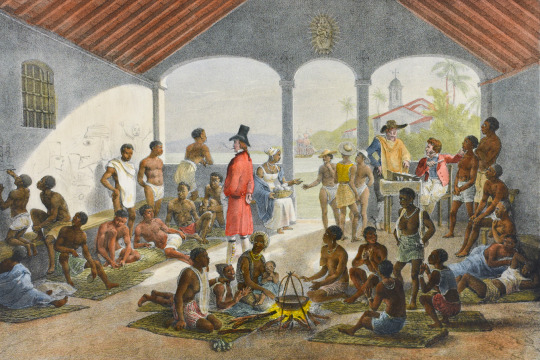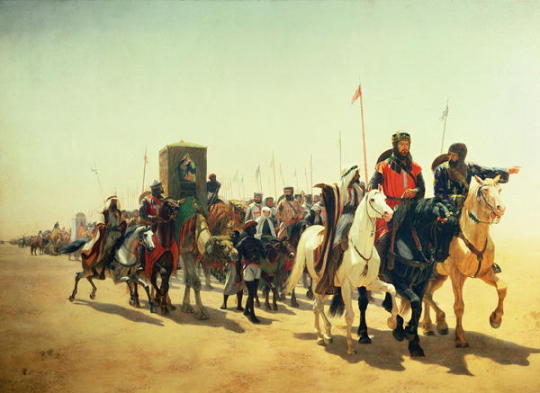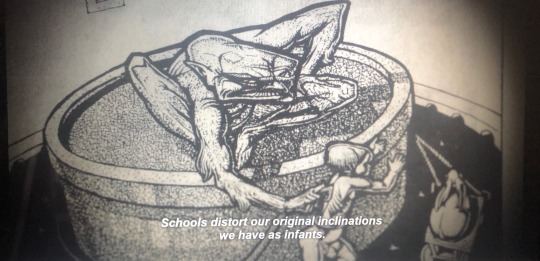neurotic001
69 posts
Don't wanna be here? Send us removal request.
Photo

Tyger Tyger. burning bright, In the forests of the night: What immortal hand or eye, Could frame thy fearful symmetry? In what distant deeps or skies. Burnt the fire of thine eyes! On what wings dare he aspire! What the hand, dare sieze the fire? And what shoulder, & what art, Could twist the sinews of thy heart? And when thy heart began to beat, What dread hand? & what dread feet? What the hammer? what the chain, In what furnace was thy brain? What the anvil? what dread grasp, Dare its deadly terrors clasp! When the stars threw down their spears And water'd heaven with their tears: Did he smile his work to see? Did he who made the Lamb make thee? Tyger, Tyger burning bright, In the forests of the night: What immortal hand or eye, Dare frame thy fearful symmetry By William Blake https://www.instagram.com/p/CTYKhk7J_YfKqr3xw_cQYCQeIGEOgaGPebbZEU0/?utm_medium=tumblr
10 notes
·
View notes
Text





Struggle: The Life and Lost Art of Szukalski (2018)
~
Director: Irek Dobrowolski
~
Cinematography: Romuald Lewandowski
~
202 notes
·
View notes
Photo

Head of a Stag, 1634, Diego Velázquez
Medium: oil,canvas
394 notes
·
View notes
Text

Simone de Beauvoir, from Diary of a Philosophy Student: Volume 1, 1926-1927; July 29th, 1926
Text ID: I have lived intensely. I must learn how to move forward.
2K notes
·
View notes
Text
“A work of art is a confession,”
— Albert Camus, from Notebooks 1935-1951; circa May 1935
3K notes
·
View notes
Text
No exaggeration, I believe that the single most effective way to develop and spread feminist consciousness is to read about other women’s experiences and talk about women’s experiences among ourselves. I have never felt so compelled to act on women’s behalf as when I allowed myself to hear and empathize with the plights of other women. Acknowledging women’s stories imbues them with cultural significance and value within a larger political context. I strongly believe that a lack of real empathy among women has been encouraged by patriarchy— the struggles of other women are vague, impersonal, and largely unknown; therefore, as a class women may be dispassionate at best regarding our collective reality, or at worst, totally ignorant of any shared experience. Feminism does not need to be dispassionate to be taken seriously.
2K notes
·
View notes
Text
We’re not responsible for the mistakes of our forebears; we’re responsible for fixing them
Every country has skeletons in its closet that some people would rather not talk about. Canada is currently shaken by the discovery of hundreds of literal skeletons of children in residential schools that used brutal methods to “Christianize” and “Westernize” First Nations children. Shockingly, the last residential school was only closed in 1996!

In the United States, the history of slavery has been brought to the forefront with this year’s celebration of Juneteenth and the government’s decision to make it a national holiday.
World History Encyclopedia now increasingly covers Early Modern history, in particular the early history of the United States, as well as the Spanish and Portuguese Empires. Inevitably, we have published an increasing number of articles on the Transatlantic Slave Trade and the realities of slavery in the New World. Unfortunately, we’ve also seen an increase of negative comments on social media, particularly when talking about slavery.
It would appear that some people feel offended when they are reminded of the history of slavery. Some of our readers attempt to relativize, question and generally diminish the importance of slavery.

For example, we commonly read things along the lines of: “So many empires in history have used slaves, America is not unique!” I think we’ve all learnt in primary school that someone else’s wrongdoing does not justify our own. “But what about the Chinese and Irish, they were mistreated, too?” Of course they were mistreated, and recognizing slavery does not mean we cannot recognize other people’s plight, too. “African kingdoms provided the slaves, the Europeans didn’t steal them!” That’s absolutely true, yet when we talk about human trafficking today, we consider the buyers to be just as guilty as the sellers.
Why is it that to some of our readers the horrors of slavery appear so offensive to their identity? Why would anyone want to minimize the impact of slavery? Let’s be fair, this is not a uniquely American phenomenon: Many Turks get enraged by mentioning the Armenian Genocide and French President Macron faced protests for recognizing (not apologizing) that France’s involvement in Algeria was problematic. All over the world there are people who see history as a threat to their nation… usually the same people who also like to use history to aggrandize their nation’s accomplishments.
I am surprised by this: Growing up in Germany, I have experienced how a horrific period in the past can resonate in the collective consciousness. However, I’ve never seen this horrible past as a stain on my personal or national identity, or something to hide. Quite the opposite, Germany has taken the horrors of Nazism, vowed to work globally to stop them from ever occurring again, and created a new and even more powerful national identity as “the good guys of Europe.”
Some US commentators want us to believe that the recognition of current racial inequalities being caused by slavery is somehow anti-American. Others say: “My family had nothing to do with slavery, why should I feel responsible?” It is entirely true that we are not responsible for the mistakes our ancestors made. That does not mean we should ignore them, though.

For that same reason, we should also not hold historical grudges. I’ve personally talked to Middle Easterners who refer back to the crusades to justify their critique of the West, and Quebecers who hate Anglo-Canadians for the oppression of French culture in Canada’s history. The people alive today are not responsible for past atrocities, so why hold a grudge? We can do better.
All of us alive today are responsible for learning from history and working together to fix the mistakes of the past that still reverberate in the cultural, economic and political landscapes of the present. The true power of history is revealed when we use it to understand the current situation and apply these learnings to build a better future. That means facing historical horrors with honesty, examining how they still affect us today, and acting upon them constructively and with mutual respect.
Jan van der Crabben CEO, World History Encyclopedia
340 notes
·
View notes
Text
“And self-murder, not suicide, the compulsory murder of oneself, what is that called which comes after love, this unnamable which is love cut with its own teeth, wasted love, rotten suffocated love, strangling of love, huge hardened tongue, full hardened pain, and which is not hate, which does not reach that state of well-being, which is love’s unburied never buried corpse, the fear and desire that there is still something living in the corpse, the great and shameful fear, in the corpse, a muscle, a hand, an old smile, and the necessity of killing the rest, everything must die, everything must be denied, we cannot bury half and leave the rest, a prey to regret, mute decay, (…)”
— Hélène Cixous Reader, ‘Deluge’ by Hélène Cixous tr. Susan Sellers
785 notes
·
View notes
Text
“Every portrait that is painted with feeling is a portrait of the artist, not of the sitter. The sitter is merely the accident, the occasion. It is not he who is revealed by the painter; it is rather the painter who, on the coloured canvas, reveals himself.”
— Oscar Wilde, The Picture of Dorian Gray
2K notes
·
View notes
Text
“It’s raining and it’s cold and maybe we’re not the great artists we dreamt we were. And maybe, this is all just shit.”
— Murphy in Love dir. Gaspar Noé
1K notes
·
View notes









